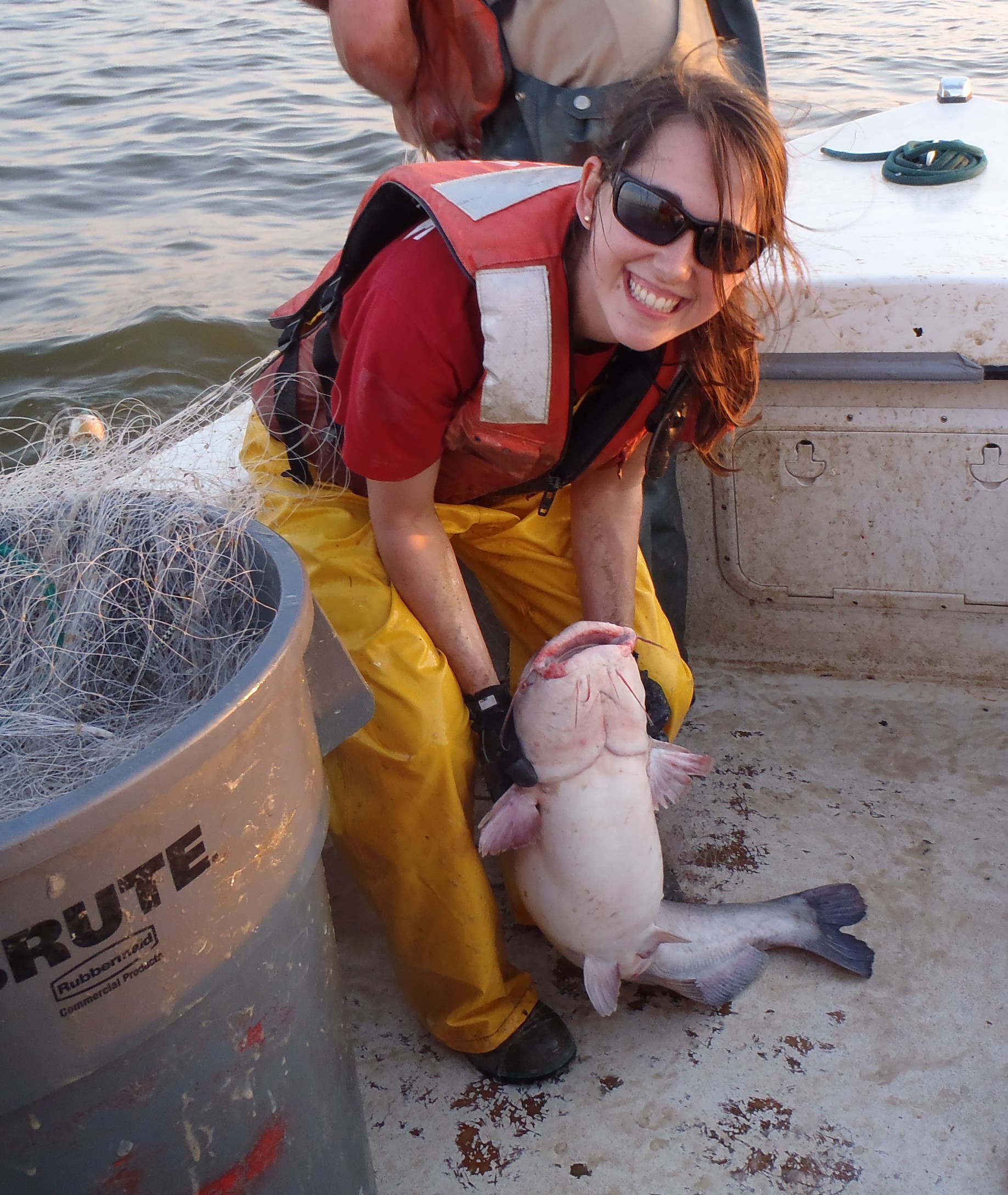Every other week, SFRC highlights a fantastic student or alumnus for #FeaturedStudentFriday. Today’s fantastic feature is Dr. Katie Lawson! Katie earned her Ph.D. in Fisheries and Aquatic Sciences, and now works as a GIS Analyst in the Alabama Natural Heritage Program (ALNHP), which is part of the Auburn University Museum of Natural History.

What’s the best thing about your current position?
The best thing about my current position is that I get to work on a diverse array of projects, all of which are important for conserving Alabama’s incredible biodiversity. My primary job duties are GIS support for biodiversity research projects conducted by the ALNHP and AUMNH, and management of a database containing rare plant, animal, and natural community occurrence data for Alabama. Although many of my responsibilities are computer-based I still get to participate in field work and outreach events, and I will also have the opportunity to teach a GIS course for biologists next year. I believe in the Natural Heritage Program mission and I feel lucky to be a part of one!
Was there any key thing that set you on the path towards SFRC?
I have always been a “biodiversity” person, particularly or fishes. The native fish of Alabama first captured my attention and drew me in to fisheries research, but when I learned that I could also study fishes from other parts of the world at the Tropical Aquaculture Lab in Ruskin, I was in. Dr. Jeff Hill advertised for a PhD student to study non-native fishes so I applied and he nominated me for a CALS fellowship, which I was awarded. I had actually met Jeff previously, and we enjoyed talking about some of the amazing streams and fish species from Alabama, his home state.
What drives you?
I am driven by the need to complete things I start and succeed despite the many obstacles and challenges. I saw a quote the other day that said “No one really prepares you in your academic life for the sheer number of loose ends you have running simultaneously and how to organize them”. I feel like getting a graduate degree, especially a PhD, is really an invitation into this lifestyle and it’s so easy to set things aside and never finish them to the extent you would like. I think this kind of drive is important for success in research because it can take a lot of strength and will power to succeed.
What were your struggles to get where you are today?
I have had many struggles in pursuing a natural resources career, but I’m sure others have had more. There are several career paths I briefly explored (or tried to explore) that through something like trial-and-error directed me to where I am now. After finishing my masters degree in fisheries, I worked as a fish technician for state and federal agencies while trying (and failing) to get a state biologist position. I then decided to give high school teaching a try, and realized that wasn’t for me either. After starting my PhD I got married and had a baby which set me back a little, then I took a job with the USGS before finishing my dissertation which added an extra year. Despite those challenges, I finished after 5 years and am so happy I did. My husband got his dream job at Auburn shortly after my graduation and I was lucky enough to get the position I currently have soon after we moved here.
What advice would you give to a younger you?
My advice would be to take as many opportunities as you can (but not so many you’ll get burnt out!). I think it’s also important to know when to say “no” though, so you can focus on succeeding in your more important endeavors and have a work/life balance. I have also learned the importance of networking and making connections because those connections will help you find jobs and grow collaborations. Lastly, I think everyone has “imposter syndrome” early in their career. Don’t let people tell you you’re not smart enough because we all have growing to do. If you want to succeed badly enough, and if you’re willing to work hard and continue learning, you more than likely deserve to be here.
Do you have any favorite memory of your time at SFRC?
My favorite memories are all centered around the people at the Tropical Aquaculture Lab in Ruskin. I met my husband there, so that probably counts! We felt like the lab was our family and I have so many fun memories of that place I can’t choose!
Are you working on anything exciting you’d like to share?
One of the coolest things I’m working on is developing species distribution models for rare species in Alabama, which we will use to drive our survey efforts. We hope that by modeling potentially suitable habitats for these species, we will be able to identify new occurrences and better understand the status and range of some of the species we track.
Do you know a fantastic SFRC student or alum that we should feature? Email us at sfrcnews@ifas.ufl.edu.
 0
0
